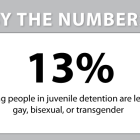
Why Dads matter
|
By Normer Adams
It is not hard to believe that Father's Day did not become a national holiday until 1972. America has always had an ambivalence about fathers. Mother's day is often celebrated with almost reverence, whereas Father's Day is often the target of much satire, parody and derision. Fathers often are regarded as the "second adult" in the home and only incidental to the development of a child. Close to 30% of all children in Georgia live in households without a father. An African American child's chances of living with a single mother household is more than 60%. With statistics like these, one can see why fathers are relegated as incidental and not essential. All this is changing. Children raised without a father's involvement are at a serious disadvantage. A couple of credible studies confirm the negative consequences of fatherless homes. 63% of youth suicides are from fatherless homes (Source: U.S. D.H.H.S., Bureau of the Census
90% of all homeless and runaway children are from fatherless homes
85% of all children that exhibit behavioral disorders come from fatherless homes (Source: Center for Disease Control)
80% of rapists motivated with displaced anger come from fatherless homes (Source: Criminal Justice & Behavior, Vol 14, p. 403-26, 1978.)
71% of all high school dropouts come from fatherless homes (Source: National Principals Association Report on the State of High Schools.)
75% of all adolescent patients in chemical abuse centers come from fatherless homes (Source: Rainbows for all Gods Children.)
70% of juveniles in state-operated institutions come from fatherless homes (Source: U.S. Dept. of Justice, Special Report, Sept 1988)
85% of all youths sitting in prisons grew up in a fatherless home (Source: Fulton Co. Georgia jail populations, Texas Dept.





